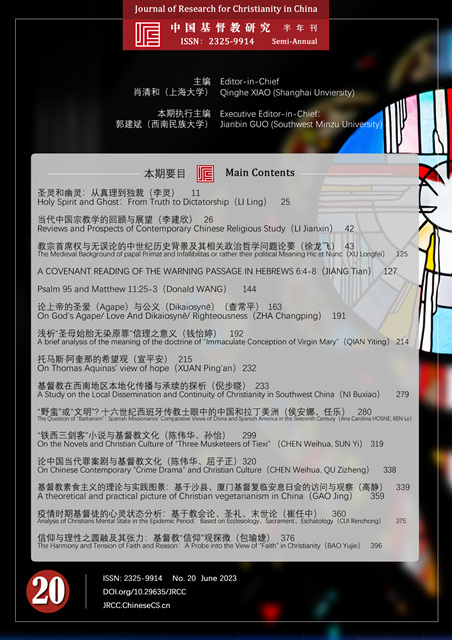Abstract
After discussing the transcendence and immanence of God, this paper defines that God’s being that is an absolute relevance in absolute difference (God’s oneness in trinity) and an absolute difference in absolute relevance (God’s persons in trinity). The former signifies God’s agape/ love in His righteousness, while the latter does God’s righteousness in His agape/ love. These attributes of God in the orthodox Christianity will be shown through the doctrine of trinity. Specifically, the prescription of God’s trinity means that that of the relationship of God as both an absolute difference and an absolute relevance among His three persons. God’s oneness in trinity signifies God’s absolute relevance inhering in the Father, the Son and the Holy Spirit, and God’s agape/ love that is an essential attribute, while God’s three persons in trinity signifies God’s absolute difference inhering in the Father, the Son and the Holy Spirit, and God’s righteousness that is an essential attribute. The author names them as God’s structure. As the confession of the catholic Church, it becomes the basic difference between Christianity and any heresy in history. Finally, this paper concludes that God is one who is not only in the world but also above the world, and who is not only immanent in the world but also transcends the world. God is absolutely related to the world by His agape/ love, when God is absolutely different from the world by His righteousness. Therefore, God is the being of having both agape/ love and righteousness which are rooted in God’s names as Elohim and Adonai in Hebrew, and which are rooted in the confessions of the catholic Church in history.

This work is licensed under a Creative Commons Attribution-NonCommercial-NoDerivatives 4.0 International License.
Copyright (c) 2023 Journal of Research for Christianity in China (JRCC)
